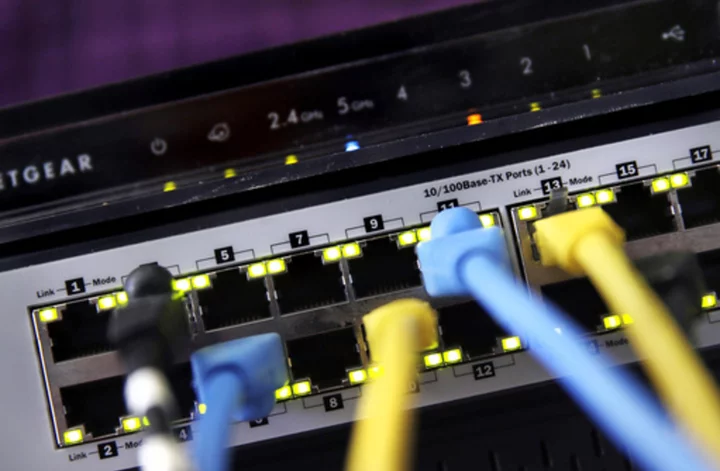President Joe Biden is expected to announce on Monday his administration's plans to distribute billions of dollars appropriated by Congress to deliver the internet to every household and small business in the United States.
Likening the push for universal connectivity to the Rural Electrification Act of 1936, when the federal government installed the electric utility lines that brought light to the countryside all across the U.S., White House chief of staff Jeff Zients said access to high-speed internet is as imperative to day-to-day life as electricity.
“We all know how difficult life is when electricity goes down after a storm or for other reasons,” Zients said on a Friday call with reporters to preview the announcement. “For millions of Americans in rural communities in particular, the internet is down a lot. Sometimes there’s not even any access.”
The amount each state, territory and Washington, D.C., will receive from the $42.5 billion program depends primarily on the number of unserved locations in each jurisdiction or those locations that lack access to internet speeds of at least 25 megabits per second download and 3 Mbps upload. Download speeds involve retrieving information from the internet, including streaming movies and TV. Upload speeds determine how fast information travels from a computer to the internet, like sending emails or publishing photos online.
More than 7% of the country falls under the underserved category, according to maps recently completed by the Federal Communications Commission to set the course for the massive undertaking.
Congress approved the Broadband Equity, Access and Deployment program, or BEAD, along with several other internet expansion initiatives, through the infrastructure bill the Democratic president signed in 2021.
Earlier this month, the Commerce Department announced winners of middle mile grants, which will fund projects that build the midsection of the infrastructure necessary to extend internet access to every corner of the country.
States will have until the end of the year to submit initial proposals outlining how they plan to use the money, which won't begin to be distributed until those plans are approved. Once the Commerce Department signs off on those plans, states can begin awarding grants to telecommunications companies, electric cooperatives and other broadband providers to build infrastructure that links homes and small businesses to the internet.
Under the rules of the program, states must prioritize connecting predominantly unserved areas before bolstering service in underserved areas, or those without access to internet speeds of 100 Mbps/20 Mbps, and community anchor institutions, such as schools and libraries.
Hinging the distribution of the nation’s largest-ever federal investment on FCC data has been somewhat controversial. Members of Congress pressed FCC Chairwoman Jessica Rosenworcel about inaccuracies they said would negatively impact rural states’ allotments in particular, and state broadband officials were concerned about the short timeline to correct discrepancies in the first version of the map.
The second version of the map, which was released at the end of May and used for allotments, reflects the net addition of 1 million locations, updated data from internet service providers and the results of more than 3 million public challenges, Rosenworcel, who in the past has been a critic of how the FCC's maps were developed, said in a May statement.
___
Harjai, who reported from Los Angeles, is a corps member for The Associated Press/Report for America Statehouse News Initiative. Report for America is a nonprofit national service program that places journalists in local newsrooms to report on undercovered issues.

